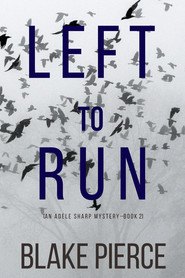По всем вопросам обращайтесь на: info@litportal.ru
(©) 2003-2025.
✖
Cause to Kill
Настройки чтения
Размер шрифта
Высота строк
Поля
What would you say? she wondered.
Tell her that you were an idiot, and that you still are. Tell her the truth: that you love her and you’ll make this right, no matter what.
The conference door opened.
“Tabitha Mitchell was a junior,” Connelly said. “She was graduating early, top of her class. And she was offered a job at Devante Accounting.”
Avery sat up.
“Holy shit.”
The connection was there. Howard Randall had been right. His words rang out: He has to find them, watch them, know them from somewhere. When she went down the list with Randall – one a senior, one a junior – he’d said no.
He knew, she realized.
The sickness Avery had felt at having to visit Randall and ask for help now began to wash away. The connection had been made, and if she could fit all the pieces together, there was hope: for her, for her future, to leave the past behind.
“Three of them,” Connelly said. “All of them had jobs at Devante.”
“How did you find out?”
“Finley’s been calling the Mitchell house. I called the mother’s cell. She was sleeping. Started crying the second I told her it was about her daughter. But she had the information we needed. What’s fucked up is, I think the papers said the same thing yesterday or the day before.”
That’s how he knew, Avery realized. Randall read the papers.
They both stared at each other in silence.
“What do we do now?” she asked.
“You tell me.”
She glanced away and bit down on her lower lip.
“We need a name. Who was the hiring manager that met with all those girls?”
“Whoever it is,” Connelly said, “he must know that at least two of the girls he hired are dead. It’s been all over the news.”
“If two girls you hired were found dead in under a week, would you call someone?”
“Not if I was guilty.”
Connelly immediately put the conference room phone on speaker and called the captain. Agitated and sleepy, a remote O’Malley listened to both Avery and Connelly on speakerphone and took his time before he answered.
“Wait until the morning,” he said. “There’s nothing we can do right now. I’ll call the chief and the mayor first thing Sunday. Shit,” he mumbled. “Devante. They’re huge.”
“We’ll start with the CEO and work our way down,” Avery said. “Someone has to have a list of names and job titles. I’m assuming our killer works in human resources.”
“Try to get some sleep tonight,” the captain said, “both of you. It might be a big day tomorrow. I’ll meet you in the office at eight. Avery, if you can’t sleep, start on the warrants: one for the company and one for an unnamed individual within the company. You can also call Devante and see if there’s a weekend staff. I doubt anyone will pick up at this hour, but it’s April. You never know.”
The line went dead.
Uneasy in his stance, Connelly refused to look at her.
“Let’s hope this works out,” he said and left.
Avery completed as much paperwork as she could on two warrants. She called at least ten numbers listed for Devante’s Boston office. No one answered.
Go home, she told herself.
Sleep was the furthest thing from her mind.
CHAPTER THIRTY TWO
Sunday felt like a Monday for Avery.
She was up and energized at seven. Strangely enough, she slept like a baby the moment she’d arrived home, probably the best night’s sleep she’d had in months.
She threw on a black pantsuit and white button-down. As always, she wore black Skechers sneakers on her feet. The days of high-heel Manolo Blahniks were long gone. After breakfast and a cup of coffee, she stood in her foyer and stared at herself.
Go get him, she said.
A twinge of doubt invaded her thoughts. There had been so many close calls already, so many leads that had turned up dead. No, she thought. This is the one. It has to be.
On the way to her car, she surveyed the landscape of her life as a cop: traffic duty, petty crimes, domestic disputes, gang warfare, and now this, her biggest case, a homicide detective on the trail of a serial killer. This is what you’ve been working toward for the last three years, she told herself: a chance to make amends for the past, to close the Howard Randall chapter for good and to step out of the shadows of miserable regret, and live.
Weekend morning shifts at the A1 changed at eight. Most of the office was empty from the transition, with a large majority of the force either on the streets or on their way into work. Connelly was already there, along with the chief and Thompson.
The chief was in jeans and a red BPD T-shirt, the most casual Avery had ever seen him. On the phone, he waved her into his office with the rest of the group.
“Hold on,” O’Malley said into the line, “I’ve got Black here. Let me put you on speaker and we can get this handled right now.”
A gravelly voice emanated through the room.
“Hello? Can everyone hear me?”
O’Malley mouthed “The mayor.”
“We’re here,” he said.
“Detective Black,” the mayor said as if the words were distasteful in his mouth, “I hear you’ve been relentless on this case, even after you were dismissed. How sure are you about Devante? You know Miles Standish is a good friend of mine.”
O’Malley mouthed “The owner.”
“I highly doubt that Mr. Standish has anything to do with this,” Avery said. “We believe the killer is someone within his offices, most likely a human resources manager or liaison that would have met with these girls, read their resumes, and then passed them on to the proper departments.”
“I asked how sure you are about Devante, Ms. Black. Are you positive this is the best lead? I have a very difficult call to make.”
“Three girls are dead,” she said. “Each one of them is from different schools, and yet they all had jobs lined up at Devante. It’s the only connection that makes sense. I’m one hundred percent sure.”
Tell her that you were an idiot, and that you still are. Tell her the truth: that you love her and you’ll make this right, no matter what.
The conference door opened.
“Tabitha Mitchell was a junior,” Connelly said. “She was graduating early, top of her class. And she was offered a job at Devante Accounting.”
Avery sat up.
“Holy shit.”
The connection was there. Howard Randall had been right. His words rang out: He has to find them, watch them, know them from somewhere. When she went down the list with Randall – one a senior, one a junior – he’d said no.
He knew, she realized.
The sickness Avery had felt at having to visit Randall and ask for help now began to wash away. The connection had been made, and if she could fit all the pieces together, there was hope: for her, for her future, to leave the past behind.
“Three of them,” Connelly said. “All of them had jobs at Devante.”
“How did you find out?”
“Finley’s been calling the Mitchell house. I called the mother’s cell. She was sleeping. Started crying the second I told her it was about her daughter. But she had the information we needed. What’s fucked up is, I think the papers said the same thing yesterday or the day before.”
That’s how he knew, Avery realized. Randall read the papers.
They both stared at each other in silence.
“What do we do now?” she asked.
“You tell me.”
She glanced away and bit down on her lower lip.
“We need a name. Who was the hiring manager that met with all those girls?”
“Whoever it is,” Connelly said, “he must know that at least two of the girls he hired are dead. It’s been all over the news.”
“If two girls you hired were found dead in under a week, would you call someone?”
“Not if I was guilty.”
Connelly immediately put the conference room phone on speaker and called the captain. Agitated and sleepy, a remote O’Malley listened to both Avery and Connelly on speakerphone and took his time before he answered.
“Wait until the morning,” he said. “There’s nothing we can do right now. I’ll call the chief and the mayor first thing Sunday. Shit,” he mumbled. “Devante. They’re huge.”
“We’ll start with the CEO and work our way down,” Avery said. “Someone has to have a list of names and job titles. I’m assuming our killer works in human resources.”
“Try to get some sleep tonight,” the captain said, “both of you. It might be a big day tomorrow. I’ll meet you in the office at eight. Avery, if you can’t sleep, start on the warrants: one for the company and one for an unnamed individual within the company. You can also call Devante and see if there’s a weekend staff. I doubt anyone will pick up at this hour, but it’s April. You never know.”
The line went dead.
Uneasy in his stance, Connelly refused to look at her.
“Let’s hope this works out,” he said and left.
Avery completed as much paperwork as she could on two warrants. She called at least ten numbers listed for Devante’s Boston office. No one answered.
Go home, she told herself.
Sleep was the furthest thing from her mind.
CHAPTER THIRTY TWO
Sunday felt like a Monday for Avery.
She was up and energized at seven. Strangely enough, she slept like a baby the moment she’d arrived home, probably the best night’s sleep she’d had in months.
She threw on a black pantsuit and white button-down. As always, she wore black Skechers sneakers on her feet. The days of high-heel Manolo Blahniks were long gone. After breakfast and a cup of coffee, she stood in her foyer and stared at herself.
Go get him, she said.
A twinge of doubt invaded her thoughts. There had been so many close calls already, so many leads that had turned up dead. No, she thought. This is the one. It has to be.
On the way to her car, she surveyed the landscape of her life as a cop: traffic duty, petty crimes, domestic disputes, gang warfare, and now this, her biggest case, a homicide detective on the trail of a serial killer. This is what you’ve been working toward for the last three years, she told herself: a chance to make amends for the past, to close the Howard Randall chapter for good and to step out of the shadows of miserable regret, and live.
Weekend morning shifts at the A1 changed at eight. Most of the office was empty from the transition, with a large majority of the force either on the streets or on their way into work. Connelly was already there, along with the chief and Thompson.
The chief was in jeans and a red BPD T-shirt, the most casual Avery had ever seen him. On the phone, he waved her into his office with the rest of the group.
“Hold on,” O’Malley said into the line, “I’ve got Black here. Let me put you on speaker and we can get this handled right now.”
A gravelly voice emanated through the room.
“Hello? Can everyone hear me?”
O’Malley mouthed “The mayor.”
“We’re here,” he said.
“Detective Black,” the mayor said as if the words were distasteful in his mouth, “I hear you’ve been relentless on this case, even after you were dismissed. How sure are you about Devante? You know Miles Standish is a good friend of mine.”
O’Malley mouthed “The owner.”
“I highly doubt that Mr. Standish has anything to do with this,” Avery said. “We believe the killer is someone within his offices, most likely a human resources manager or liaison that would have met with these girls, read their resumes, and then passed them on to the proper departments.”
“I asked how sure you are about Devante, Ms. Black. Are you positive this is the best lead? I have a very difficult call to make.”
“Three girls are dead,” she said. “Each one of them is from different schools, and yet they all had jobs lined up at Devante. It’s the only connection that makes sense. I’m one hundred percent sure.”

















